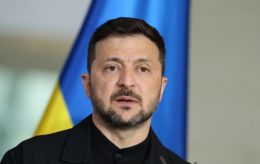Drowning in debt, fighting for Putin: How Russia lures 'volunteers' to war
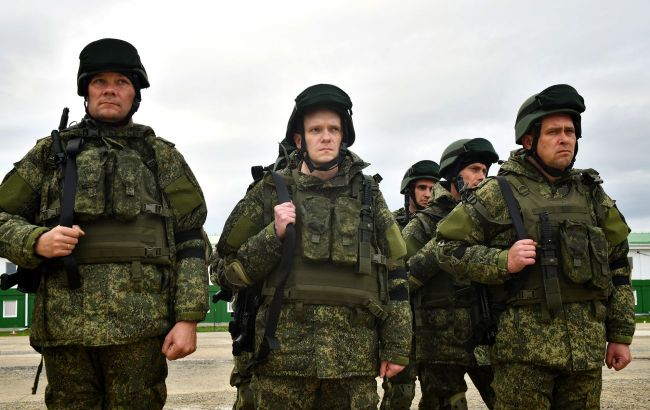 Russian soldiers (photo: Getty Images)
Russian soldiers (photo: Getty Images)
Russia recruits around 10,000 people for the front lines every month, according to a recent statement by Ukraine's General Staff. What promises are made to lure Russians into battle, what drives them to sign military contracts, and what do prisoners of war say about it? Read the analysis by RBC-Ukraine.
Key questions
- What is Russia offering its citizens to get them into the army?
- What motivates Russian residents to go to war?
- What’s happening with the Russian economy, and how much is the Kremlin spending to "buy" soldiers?
- What social effects has the influx of money brought to economically backward regions of Russia?
— Why did you sign the contract?
— A gypsy asked me to. I worked for him picking apples. He told me, 'Go there, you'll work as a loader, an easy job. We'll split the money 50/50.'
Russian soldier Aleksey Shivov was captured near Lyptsi in the Kharkiv region. After being left without supplies, he went looking for water on the sixth day, when he heard someone yell "Stop!" behind him. In his hometown, he had worked odd jobs, doing various tasks.
One day, the man he was picking apples for suggested he sign a contract and promised to split the earnings with him. Shivov still doesn't quite understand what documents were signed on his behalf. In a video obtained by the Telegram channel Nikolaevsky Vanek, Shivov is already in captivity, still stunned by how it all happened.
— He filled out everything for me. I don’t know what he wrote, of course.
— You don't know how to write?
— I only finished three grades of school.
Shivov is far from the only Russian who went to war for the money. It appears that the vast majority of Russian soldiers joined the front lines to earn an income.
Russia's full-scale war against Ukraine has dragged on for more than three years, yet Kremlin propaganda continues to brand its army as voluntary. State TV constantly shows soldiers in dress uniforms, missing limbs but decorated with medals "for the liberation of Mariupol." The fact that they went to the front is glamorized, heroized, and elevated as the ultimate example of love for the motherland — a land they somehow decided to defend in Ukraine.
What's hidden, however, is the other side: where soldiers are effectively bought for cash, exploiting the economic hardship of depressed regions. In 2024 alone, Moscow spent nearly $2 billion on "recruitment bonuses", and total annual military spending reached nearly $33 billion.
Over the years of war, Russia has built an extensive recruitment network that regularly supplies human resources to the front lines. Some recruiters run ads promising military benefits. Others look for potential volunteers among their communities. Still others cast a wide net, targeting everyone from outcasts to people drowning in debt. The final link in this chain: the future soldiers themselves. Once captured, they tend to give the same reasons for why they chose to fight.
Russian propaganda keeps pushing the volunteer army narrative. According to top TV anchors, men go to the front to repay a debt to Russia. In a way, they're not wrong — Russians really are going to war because of debt. But not the sacred kind. This is about literal, financial debt. Recruitment ads on social media even include a specific line: "Debts up to 10 million rubles will be written off."
"Russians go to the front solely for the money. There's a small percentage who go for other reasons, but even they aren't doing it out of patriotism. Maybe a friend went and was killed, so they joined. But in general, they go for the money. It's a mercenary army — using the word 'volunteer' here is completely inappropriate,"
says Russian opposition political analyst Ivan Preobrazhensky in a comment to RBC-Ukraine.
'Arise, great country!'
Most people who sign a contract with Russia's Ministry of Defense do it for the money. The amount varies by region, but often it's an unheard-of sum for locals, especially in economically depressed areas where jobs are scarce and there's little to do. The choice often comes down to: drink yourself to death, or join the army and hope you don't get killed.
During recruitment, the stage where a curator works with a potential soldier, they are usually promised they won't be sent to the front lines. The vast majority of captured Russian soldiers say they were deceived: they were told they'd be doing support work, but ended up sent into assaults.
— I had a curator who promised I'd be doing something else once I transferred. I think more than 200 people were deceived. Their transfer papers were just thrown away. We tried calling, but no one answered. Once we got there, I sent the curator one last message: 'Thanks, we were all sent to the wrong place.'
Pavel Nikolaev, a 25-year-old from Volgograd, signed a contract because he had debts to pay. He was promised an engineering role, aligned with his education. But after basic training, he started to suspect something was off. After training, he was sent to combat.
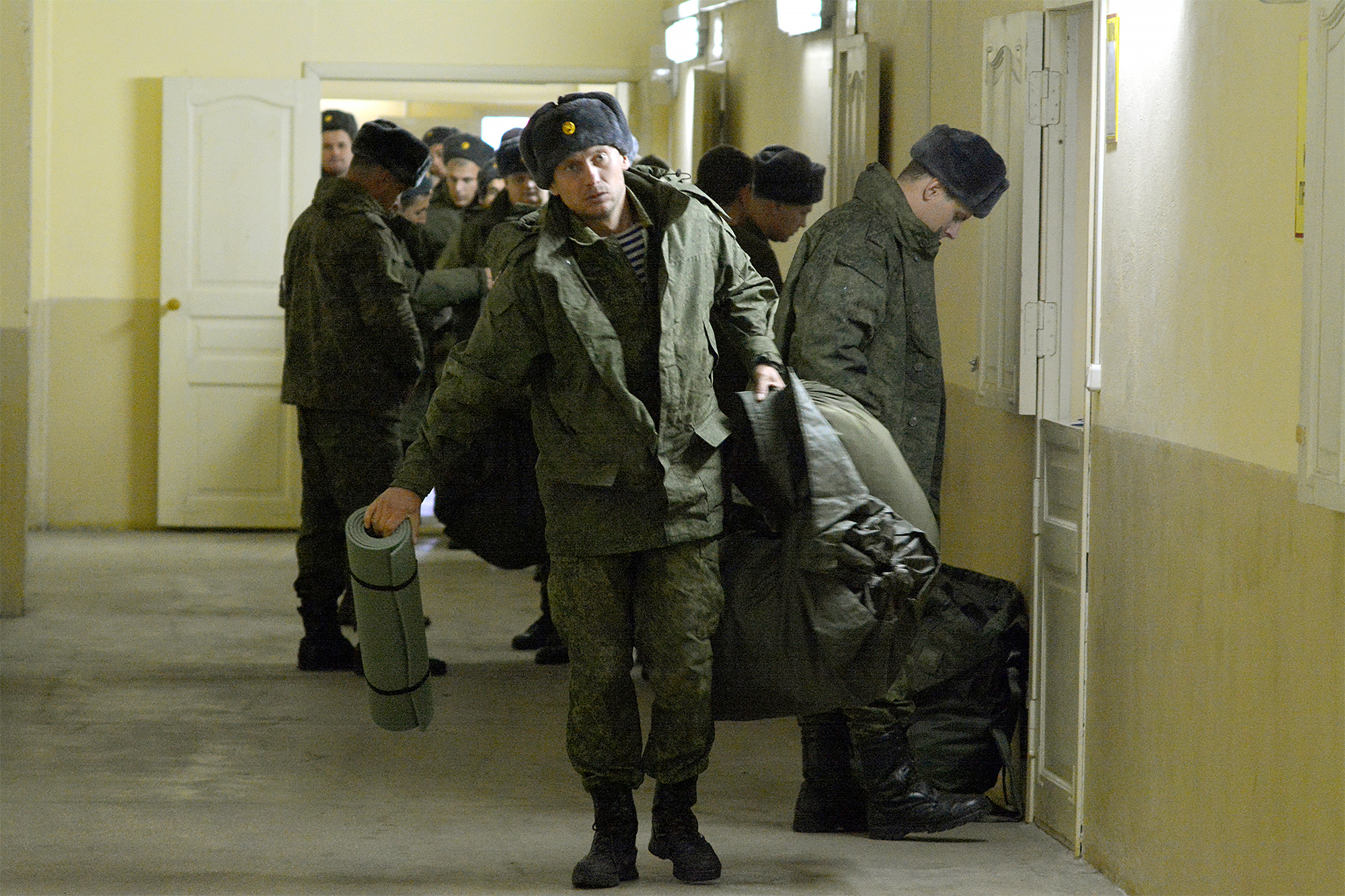
Russian soldier in Rostov (Photo: Getty Images)
— They taught us how to dodge drones. A little shooting. Then we were taken to a location. The task was to hold a point with one other person. Then secure a house and try not to get burned in the basement. Later, they said they'd send us a gift. A drone flew over and dropped a bundle wrapped in red insulation tape. The 'gift' was a Russian tricolor flag.
Oleksandr, a Ukrainian serviceman (real name and rank withheld for security reasons), works with Russian POWs before they're sent to detention. He regularly interviews them to learn about their motivations. He admits only one ideologically driven Russian soldier has crossed his path. Another had read too much combat romanticism and wanted to experience it firsthand. The rest? Debtors, convicts, and social outcasts.
"We had a fresh one, recently captured. His friend, who worked at a draft office, got him drunk and suggested signing a contract. He went to war, and his friend got a bonus. Refer a friend and get a reward — that system really works," Oleksandr says.
Many Russians go to war because of recommendations from friends, who often turn out to be recruiters. Recruiters can be anyone: an IT middle manager or a vegetable shop cashier who shares drinks with a potential recruit now and then.
Aleksey Kukushkin, 37, from the Vladimir region, was captured in the Kherson region. Back home, he was promised he'd "tighten bolts" or, at worst, stand at a checkpoint. Reality turned out far worse.
— They told me I'd either work as a mechanic, tighten bolts, or stand guard. I'd earn - not 200,000 like combat troops - but 150,000–180,000. They said I wouldn't be in combat. But they just threw us straight into the sh*t.
Kukushkin also joined the army because of debt. When asked by Ukrainian soldiers how he got into debt, he replied, "Didn't take long." When they pressed him— "Gambling? Booze? Drugs?" — he shrugged: "A bit of everything."
— Did your future wife support your decision to enlist?
— No.
— What did she say?
— That I’m a f*cking idiot.
Russian army recruitment brochures look like advertisements for prestigious, well-paid jobs. The "employer" promises all kinds of benefits, quality training, assistance with all paperwork, and paid leave every six months. Considering how short the time is between signing the contract and dying, the leave promise is especially cynical, like the rest of the ad.
"About six months ago, they were called '30-dayers'. Often, less than a month passed between contract signing and capture. Two weeks of training and you're on the front. Some praise the training: for them, 'good' means firing four magazines and getting some basic tactical medicine," says Oleksandr.
Another category of recruits: convicts or those facing prison time. One POW told Ukrainian troops he was forced into it. One day, he entered an MTS mobile store, got bad service, and threatened to bomb the place. Later, police showed up at his home. They gave him a choice: the frontline or prison for terrorism.
Many are taken straight from prison. A practice started by former Wagner Group leader Yevgeny Prigozhin continues today. Salavat Ermabitov, 52, from Bashkortostan, confirms this.
— So that's how I ended up here. Drank, stole something, and now - here I am.
He also mentions regular extortion at the front. Don't want to assault? Pay. Late from the leave? Pay. Russian officers and commanders actively exploit contacts and bribes, though there's no guarantee a bribe will help..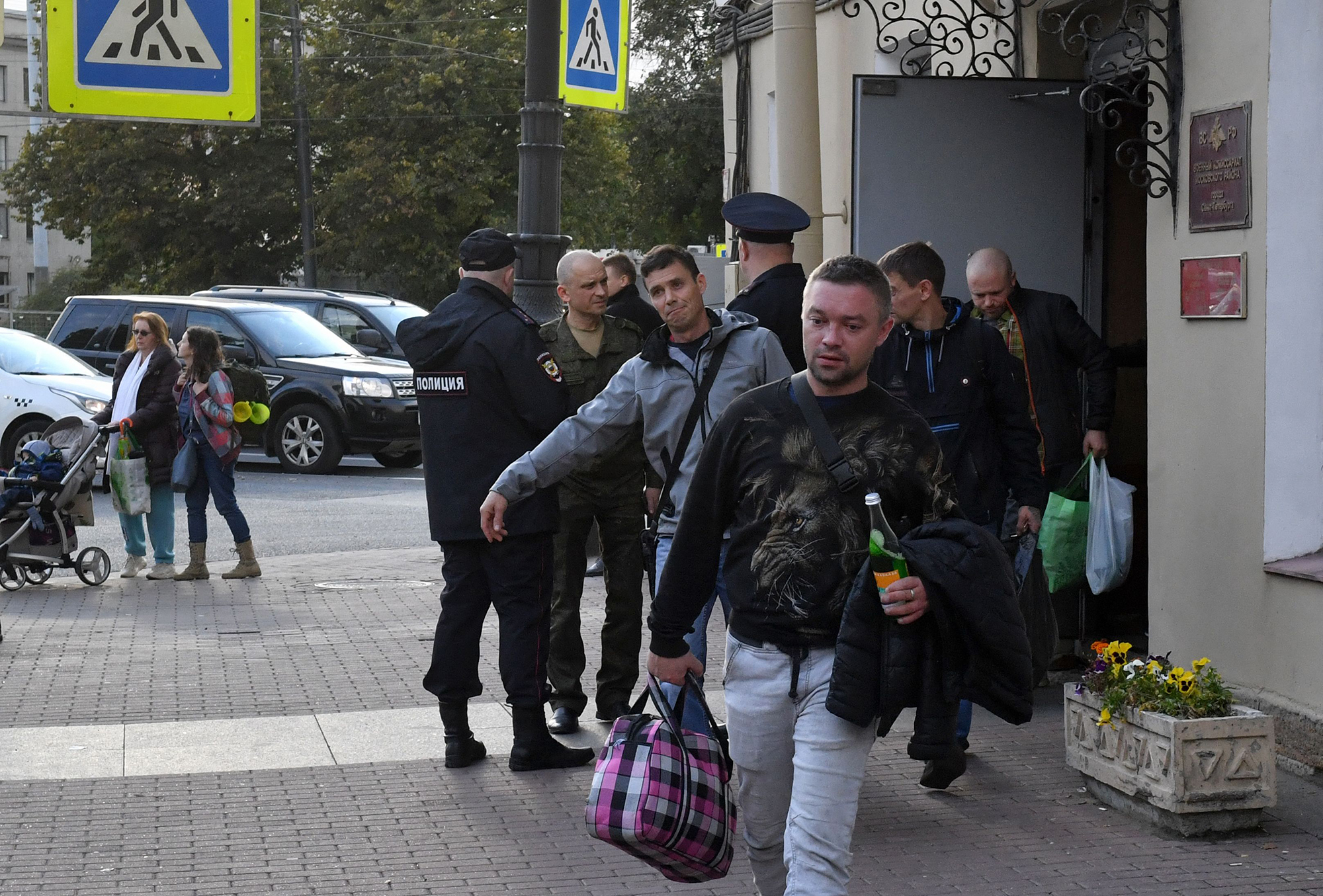
Russian mobilization resource (Photo: Getty Images)
"One guy from the 810th brigade from Sevastopol paid 800,000 rubles to stay defending Crimea. They took the money, and a week later, he was sent to the Kursk sector and captured. Kickbacks are standard. Everything has a price," says Oleksandr.
Opportunists
Once captured, the vast majority of Russians try to express remorse. Naturally, they claim they never killed anyone — and if they did, it was accidental. They say they came to Ukraine for the money, hoping to be assigned to rear positions. And once in captivity, they're genuinely happy, which seems to be the only honest part.
Oleksandr, who communicates with prisoners at the earliest stages, says they do everything they can to make a good impression. They eagerly criticize the government and apologize. For example, 27-year-old Sergey Ulybin from Birobidzhan swears he's ashamed.
— I'm mostly ashamed in front of you. For being caught on your land. I didn't want to go — the commanders forced me. Fifteen years, come on, we'll sort things out. Otherwise, I wouldn't have gone.
— So you signed the contract to avoid a suspended sentence?
— Yes.
40-year-old Sergey Gavrikov from the Bryansk region tried so hard to win favor that he inadvertently said something that could get him in trouble back home.
— Our government doesn't give a f*ck about us. We're nothing to them. Putin's a dickhead to me now. I don't feel anything for him. Actually, I never did. Especially after he raised the pension age.
— That's the only thing that bothered you?
— No, no...
According to Oleksandr, Russian repentance means little. Yes, they go to war for money — but there's more to it.
"It's kind of funny to talk to them. They try to lie, but it's so obvious — they desperately want you to like them. They all suddenly hate Putin. But the truth is, they have no value system. They just want to drink, get paid, and ‘kill khokhols’ (a derogatory term for Ukrainians). And they're proud of that back home."
In some cases, even the most remorseful POWs had videos on their phones proudly showing their "work" — for example, torturing Ukrainian prisoners. About six months ago, Russian troops executed captured Ukrainian soldiers. Ukrainian forces were tasked with finding the perpetrators. Volunteers weren't hard to find. Not long after, Ukrainian troops launched a targeted assault and captured six Russians — three were killed, three taken prisoner.
"And it was wild — without even coordinating, the three of them immediately started ratting each other out. It's classic prison culture. So you can't pin the blame on just one — they all snitch," added Oleksandr.
New consumers
In its current offensive operations, the Kremlin is betting heavily on manpower. Russian troops gather in large numbers on specific fronts, and in that regard, they're hard to match. They'll send waves of soldiers — dozens, even hundreds — to secure a single position. They're eliminated, but new ones keep coming, until someone finally reaches the target. Then more join in. The death toll doesn't matter to Moscow. What matters is advancement.
But manpower, even for the Kremlin, isn't cheap. Russia's economy is struggling. Not catastrophically, but enough to affect its stability. One issue is inflation.
"The money exists because they keep printing it. Inflation is spinning out of control, the economy is overheating, and huge amounts are going to the war," noted Preobrazhensky.
When passing the 2024 budget, Russia's finance minister called it a "victory budget" and announced plans to cut military spending in 2025. Instead, the opposite happened: for the first time, officials restructured the budget, diverting reserves and social spending toward defense.
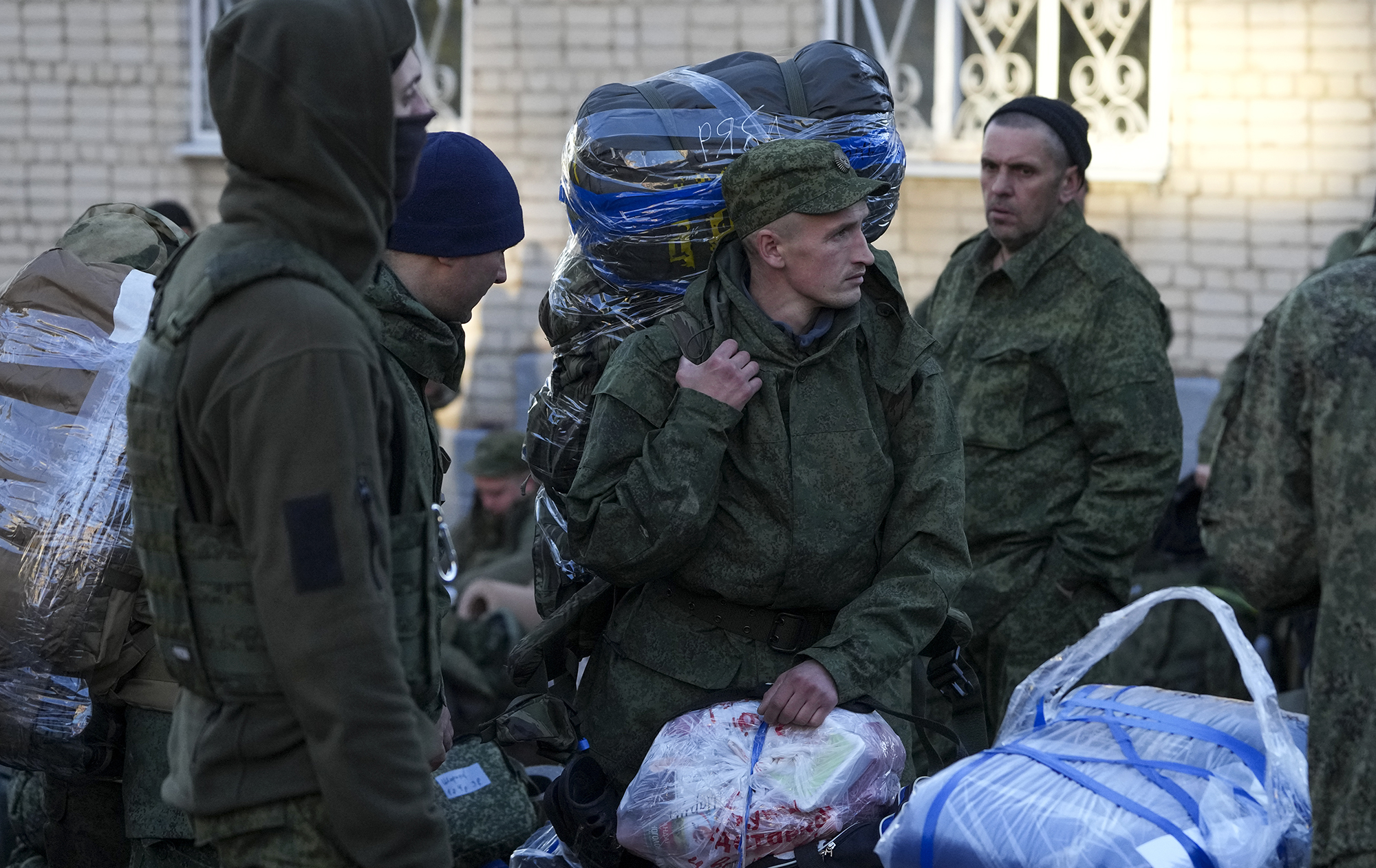
Mobilized troops in Moscow depart for combat coordination zones (Photo: Getty Images)
Since the war began, Russia has been burning through its reserve funds, enough to last 2.5 to 3 years. After that, the economy started eating what it actually produces. If the war drags on, Russia will keep slashing social spending in favor of the military. Eventually, the standard of living may become unbearable — but even then, there's no guarantee Russians will act. More likely, they'll adapt — as they've done before.
There's already a visible reaction. In 2025, Russian marketers identified a new demographic: "the newly rich Russians" — people whose wealth rose thanks to payouts and enlistment bonuses given to soldiers' families. These new consumers remain poor in their habits: they fall for low-level marketing and quickly burn through their cash.
"This happened after WWI, too — money flooded the villages. This group is stable, starts influencing society through consumer behavior, and shapes broader societal trends. Because it's active. And it doesn't think," Preobrazhensky adds.
They don't question authority. Most of them are content with their new financial standing, even if it came at the cost of a loved one. The money they receive while the soldier is alive — and what comes after his death — are life-changing sums. Most rural residents will never earn that in a lifetime.
A typical resident of a depressed region will go to war because it seems like the only legal way to make serious money. Their logic is simple: "I'm a small person." This mentality is easily exploited by loan sharks who offer credit, and then by those who use the debt as leverage. Then, at their most desperate moment, a curator appears, promising great prospects in the Russian army and minimal risk.
Morality isn't part of the equation. People have grown used to the war — it's part of daily life. If the government not only legalized aggression against a neighboring country but also offers you big money to join in — why not take the offer?
But even so, manpower is running out. Fewer marginalized men are willing to kill for money. Soon, only those who assess the risk as higher than 210,000 rubles/month will remain. And Russia's economy isn't ready for that.
"That stratum is drying up. Recruiting is becoming more expensive. The cost of not thinking is rising. Fewer people are willing to shut down their conscience — you can see that from the rising payouts. But now those payouts are leveling off — because there's more need than money," Preobrazhensky adds.
***
Three and a half years into the war, it's becoming increasingly clear: Russia's army is less a military structure than a machine that exploits poverty and fear. While Kremlin propaganda glorifies the heroes of the Special Military Operation and their supposed bravery, the front lines tell a different story.
26-year-old Russian Alexander Shkutov told Ukrainian troops about his experience. He went on an assault mission. During shelling, his commander was wounded, bled out, and died. Shkutov didn't retrieve the body. When asked why, he hesitated and shrugged.
— What does the phrase "Russians don't abandon their own" mean to you?
— Well… from my experience, I'd say they do.
